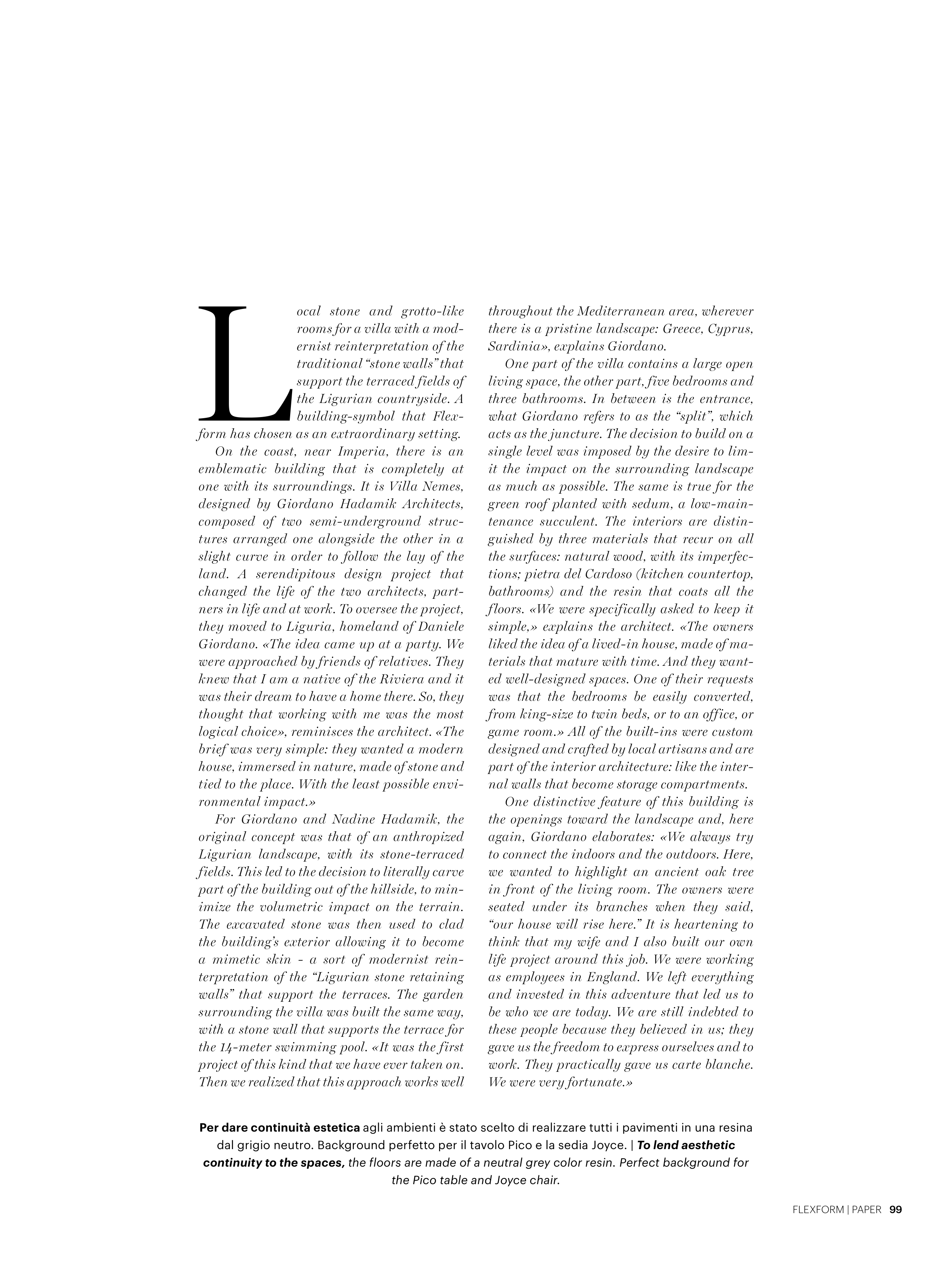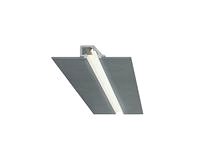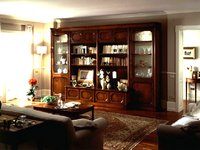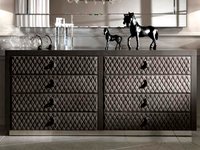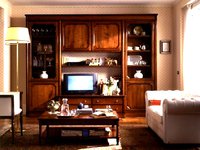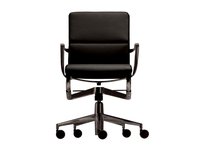99
FLEXFORM | PAPER
Per dare continuità estetica agli ambienti è stato scelto di realizzare tutti i pavimenti in una resina
dal grigio neutro. Background perfetto per il tavolo Pico e la sedia Joyce. | To lend aesthetic
continuity to the spaces, the floors are made of a neutral grey color resin. Perfect background for
the Pico table and Joyce chair.
L
ocal stone and grotto-like
rooms for a villa with a mod-
ernist reinterpretation of the
traditional “stone walls” that
support the terraced fields of
the Ligurian countryside. A
building-symbol that Flex-
form has chosen as an extraordinary setting.
On the coast, near Imperia, there is an
emblematic building that is completely at
one with its surroundings. It is Villa Nemes,
designed by Giordano Hadamik Architects,
composed of two semi-underground struc-
tures arranged one alongside the other in a
slight curve in order to follow the lay of the
land. A serendipitous design project that
changed the life of the two architects, part-
ners in life and at work. To oversee the project,
they moved to Liguria, homeland of Daniele
Giordano. «The idea came up at a party. We
were approached by friends of relatives. They
knew that I am a native of the Riviera and it
was their dream to have a home there. So, they
thought that working with me was the most
logical choice», reminisces the architect. «The
brief was very simple: they wanted a modern
house, immersed in nature, made of stone and
tied to the place. With the least possible envi-
ronmental impact.»
For Giordano and Nadine Hadamik, the
original concept was that of an anthropized
Ligurian landscape, with its stone-terraced
fields. This led to the decision to literally carve
part of the building out of the hillside, to min-
imize the volumetric impact on the terrain.
The excavated stone was then used to clad
the building’s exterior allowing it to become
a mimetic skin - a sort of modernist rein-
terpretation of the “Ligurian stone retaining
walls” that support the terraces. The garden
surrounding the villa was built the same way,
with a stone wall that supports the terrace for
the 14-meter swimming pool. «It was the first
project of this kind that we have ever taken on.
Then we realized that this approach works well
throughout the Mediterranean area, wherever
there is a pristine landscape: Greece, Cyprus,
Sardinia», explains Giordano.
One part of the villa contains a large open
living space, the other part, five bedrooms and
three bathrooms. In between is the entrance,
what Giordano refers to as the “split”, which
acts as the juncture. The decision to build on a
single level was imposed by the desire to lim-
it the impact on the surrounding landscape
as much as possible. The same is true for the
green roof planted with sedum, a low-main-
tenance succulent. The interiors are distin-
guished by three materials that recur on all
the surfaces: natural wood, with its imperfec-
tions; pietra del Cardoso (kitchen countertop,
bathrooms) and the resin that coats all the
floors. «We were specifically asked to keep it
simple,» explains the architect. «The owners
liked the idea of a lived-in house, made of ma-
terials that mature with time. And they want-
ed well-designed spaces. One of their requests
was that the bedrooms be easily converted,
from king-size to twin beds, or to an office, or
game room.» All of the built-ins were custom
designed and crafted by local artisans and are
part of the interior architecture: like the inter-
nal walls that become storage compartments.
One distinctive feature of this building is
the openings toward the landscape and, here
again, Giordano elaborates: «We always try
to connect the indoors and the outdoors. Here,
we wanted to highlight an ancient oak tree
in front of the living room. The owners were
seated under its branches when they said,
“our house will rise here.” It is heartening to
think that my wife and I also built our own
life project around this job. We were working
as employees in England. We left everything
and invested in this adventure that led us to
be who we are today. We are still indebted to
these people because they believed in us; they
gave us the freedom to express ourselves and to
work. They practically gave us carte blanche.
We were very fortunate.»


